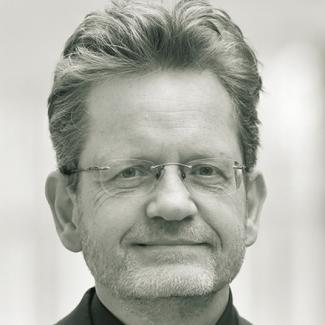Comment
Room for improvement
By Kai Ambos
The International Criminal Court (ICC) was founded in 1998 and started operating in the summer of 2003. Its goals are noble. The preamble of the Rome Statute, the Court’s founding document, states that “the most serious crimes of concern to the international community as a whole must not go unpunished” and that “such grave crimes threaten the peace, security and well-being of the world”.
Just how difficult it is to accomplish this mission has become evident in the past eight years. So far, the ICC has not passed a single judgement. Its first case, in which Thomas Lubanga Dyilo, a warlord from Congo, is on trial, is still dragging on. The judgement, to which an appeal will yet be possible, was postponed several times. In December, it was expected any moment, but was not announced when D+C/E+Z went to print before Christmas.
The number of cases pending before the ICC has grown fast. Today, the Court is investigating Omar Al-Bashir, the president of Sudan, as well as Seif al-Islam Gaddafi, the son of Libya’s former dictator Muammar Gaddafi. Most recently, Côte d’Ivoire’s government extradited Laurent Gbagbo, the country’s former president.
To succeed, the ICC’s has to rely on the international community. Whether its arrest warrants are obeyed or not depends on the territorial state concerned and third countries. Gbagbo was handed over to the ICC, but Al-Bashir was not. It is only fair to say that the ICC’s track record so far is mixed at best. That only Africans have been put on trial, moreover, exposes the Court to accusations of being an “African Criminal Court”.
To date, the ICC’s most visible and probably most important organ is the Office of the Prosecutor (OTP). Luis Moreno Ocampo from Argentina has been heading since June 2003. His deputy, Fatou Bensouda, a Gambian lawyer, will succeed him in June 2012. The ICC’s 120 member state parties elected her in December as the candidate of consensus. Observers consider her a good choice, not only because she is a woman from Africa, but just as much because she is likely to have learned from her predecessor’s failures.
Indeed, legal experts do not assess Moreno Ocampo’s performance favourably. David Kaye, a specialist in international law, recently wrote a damning verdict in Foreign Affairs. His telling headline was: “Who’s afraid of the International Criminal Court?” His essay summed up what is wrong with Moreno Ocampo: a “management and decision-making style that has alienated subordinates and court officials alike”, “petty battles over turf and resources”, “erratic decision-making”, “brash behaviour” and “charges of politicisation”. For good reason, Kaye wrote that Moreno Ocampo’s tenure was not an unqualified success. Indeed, his recurring judicial setbacks have cast doubt on his office.
In the international criminal law community, many share Kaye’s views. English language media and websites have even demanded Moreno Ocampo’s resignation. It is said that he only managed to stay in office for so long thanks to his diplomatic skills.
The sad truth is that he is a prosecutor who prefers holding press conferences to reading files. He enjoys making grand statements about being “the world’s most powerful prosecutor”, but does not spend much time diligently assessing intricate legal matters. In a most embarrassing scene, the propaganda movie “Prosecutor” shows him stepping out of a helicopter dressed in a speckles white suit on to a muddy village square in the Northeast of the Democratic Republic of the Congo and telling the people of that godforsaken place about peace and justice. His failures should have taught his successor Bensouda a few lessons. Let’s hope she’ll do better.







